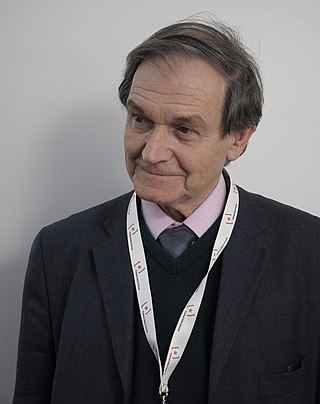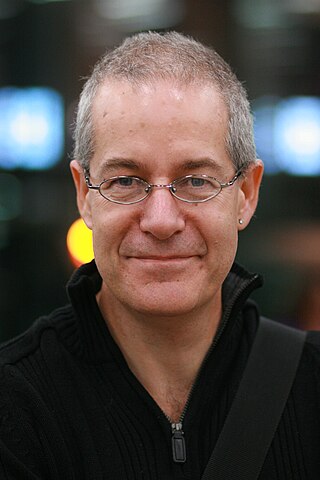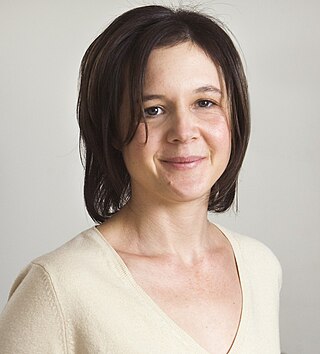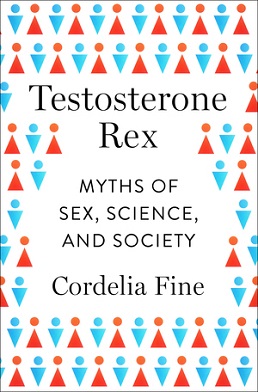Related Research Articles

Sir Roger Penrose is a British mathematician, mathematical physicist, philosopher of science and Nobel Laureate in Physics. He is Emeritus Rouse Ball Professor of Mathematics in the University of Oxford, an emeritus fellow of Wadham College, Oxford, and an honorary fellow of St John's College, Cambridge, and University College London.

Robert Maurice Lipson Winston, Baron Winston, is a British professor, medical doctor, scientist, television presenter and Labour peer.
Icons of Evolution is a book by Jonathan Wells, an advocate of the pseudoscientific intelligent design argument for the existence of God and fellow of the Discovery Institute, in which Wells criticizes the paradigm of evolution by attacking how it is taught. The book includes a 2002 video companion. In 2000, Wells summarized the book's contents in an article in the American Spectator. Several of the scientists whose work is sourced in the book have written rebuttals to Wells, stating that they were quoted out of context, that their work has been misrepresented, or that it does not imply Wells's conclusions.
John Corrigan "Jonathan" Wells is an American theologian and advocate of the pseudoscientific argument of intelligent design. Wells joined the Unification Church in 1974, and subsequently wrote that the teachings of its founder Sun Myung Moon, his own studies at the Unification Theological Seminary and his prayers convinced him to devote his life to "destroying Darwinism." The term Darwinism is often used by intelligent design proponents and other creationists to refer to the scientific consensus on evolution. He gained a PhD in religious studies at Yale University in 1986, then became Director of the Unification Church's inter-religious outreach organization in New York City. In 1989, he studied at the University of California, Berkeley, where he earned a PhD in molecular and cellular biology in 1994. He became a member of several scientific associations and has published in academic journals.

In philosophy of mind, the hard problem of consciousness is to explain why and how humans and other organisms have qualia, phenomenal consciousness, or subjective experiences. It is contrasted with the "easy problems" of explaining why and how physical systems give a (healthy) human being the ability to discriminate, to integrate information, and to perform behavioral functions such as watching, listening, speaking, and so forth. The easy problems are amenable to functional explanation—that is, explanations that are mechanistic or behavioral—since each physical system can be explained purely by reference to the "structure and dynamics" that underpin the phenomenon.

Massimo Pigliucci is an Italian-American philosopher and biologist who is professor of philosophy at the City College of New York, former co-host of the Rationally Speaking Podcast, and former editor in chief for the online magazine Scientia Salon. He is a critic of pseudoscience and creationism, and an advocate for secularism and science education.

Christopher Donald Frith FRS, FMedSci, FBA, FAAAS is a British psychologist and professor emeritus at the Wellcome Centre for Neuroimaging at University College London. He is also an affiliated research worker at the Interacting Minds Centre at Aarhus University, an honorary Research Fellow at the Institute of Philosophy and a Quondam Fellow of All Souls College, Oxford.
Kathleen E. Taylor is a popular science author and a research scientist in the Department of Physiology, Anatomy and Genetics at the University of Oxford. In July 2012 she was appointed as a Science Fellow of the Institute for Food, Brain and Behaviour.

The Female Brain is a book written by the American neuropsychiatrist Louann Brizendine in 2006. The main thesis of the book is that women's behavior is different from that of men due, in large measure, to hormonal differences. Brizendine says that the human female brain is affected by the following hormones: estrogen, progesterone, testosterone, oxytocin, neurotransmitters, and that there are differences in the architecture of the brain that regulate such hormones and neurotransmitters.

Cordelia Fine is a Canadian-born British philosopher of science, psychologist, and writer. She is a full professor in the History and Philosophy of Science programme at the University of Melbourne, Australia. Fine has written three popular science books on the topics of social cognition, neuroscience, and the popular myths of sex differences. Her latest book, Testosterone Rex, won the Royal Society Science Book Prize, 2017. She has authored several academic book chapters and numerous academic publications. Fine is also noted for coining the term 'neurosexism'.

Delusions of Gender: How Our Minds, Society, and Neurosexism Create Difference is a 2010 book by Cordelia Fine, written to debunk the idea that men and women are hardwired with different interests. The author criticizes claimed evidence of the existence of innate biological differences between men and women's minds as being faulty and exaggerated, and while taking a position of agnosticism with respect to inherent differences relating to interest/skill in "understanding the world" versus "understanding people", reviews literature demonstrating how cultural and societal beliefs contribute to sex differences.

James Edward Baggott is a British science writer living in Reading, Berkshire, England who writes about science, philosophy and science history. Baggott is the author of nine books, including Farewell to Reality: How Modern Physics Has Betrayed the Search for Scientific Truth, Origins: The Scientific Story of Creation, Higgs: The Invention and Discovery of the God Particle and The Quantum Story: A History in 40 moments.
The Extended Evolutionary Synthesis (EES) consists of a set of theoretical concepts argued to be more comprehensive than the earlier modern synthesis of evolutionary biology that took place between 1918 and 1942. The extended evolutionary synthesis was called for in the 1950s by C. H. Waddington, argued for on the basis of punctuated equilibrium by Stephen Jay Gould and Niles Eldredge in the 1980s, and was reconceptualized in 2007 by Massimo Pigliucci and Gerd B. Müller.
Suzanne O'Sullivan is an Irish neurologist and author.

Gina Rippon is a British neurobiologist and feminist. She is a professor emeritus of cognitive neuroimaging at the Aston Brain Centre, Aston University, Birmingham. Rippon has also sat on the editorial board of the International Journal of Psychophysiology. In 2019, Rippon published her book, Gendered Brain: The New Neuroscience that Shatters the Myth of the Female Brain, which investigates the role of life experiences and biology in brain development.
The NeuroGenderings Network is an international group of researchers in neuroscience and gender studies. Members of the network study how the complexities of social norms, varied life experiences, details of laboratory conditions and biology interact to affect the results of neuroscientific research. Working under the label of "neurofeminism", they aim to critically analyze how the field of neuroscience operates, and to build an understanding of brain and gender that goes beyond gender essentialism while still treating the brain as fundamentally material. Its founding was part of a period of increased interest and activity in interdisciplinary research connecting neuroscience and the social sciences.
"The Spandrels of San Marco and the Panglossian Paradigm: A Critique of the Adaptationist Programme", also known as the "Spandrels paper", is a paper by evolutionary biologists Stephen Jay Gould and Richard Lewontin, originally published in the Proceedings of the Royal Society B: Biological Sciences in 1979. The paper criticizes the adaptationist school of thought that was prevalent in evolutionary biology at the time using two metaphors: that of the spandrels in St Mark's Basilica, a cathedral in Venice, Italy, and that of the fictional character "Pangloss" in Voltaire's novella Candide. The paper was the first to use the architectural term "spandrel" in a biological context; the term "spandrel" has since gained currency in biology to refer to byproducts of adaptation.
Neurosexism is an alleged bias in the neuroscience of sex differences towards reinforcing harmful gender stereotypes. The term was coined by feminist scholar Cordelia Fine in a 2008 article and popularised by her 2010 book Delusions of Gender. The concept is now widely used by critics of the neuroscience of sex differences in neuroscience, neuroethics and philosophy.

Philip Goff is a British author, idealist philosopher, and professor at Durham University whose research focuses on philosophy of mind and consciousness. Specifically, it focuses on how consciousness can be part of the scientific worldview. Goff holds that materialism is incoherent and that dualism leads to "complexity, discontinuity and mystery". Instead, he advocates a "third way", a version of Russellian idealist monism that attempts to account for reality's intrinsic nature by positing that consciousness is a fundamental, ubiquitous feature of the physical world. "The basic commitment is that the fundamental constituents of reality—perhaps electrons and quarks—have incredibly simple forms of experience."

Testosterone Rex: Myths of Sex, Science, and Society is the third book written by Cordelia Fine, published in January 2017 by W.W. Norton & Company. Fine discusses the heavy emphasis our current society has put on biological sex and why this is a motivation for this book. Fine goes on to define what 'Testosterone Rex' is and why the idea should be extinct.
References
- ↑ Pigliucci, Massimo (2006). "Review of A Mind of Its Own: How Your Brain Distorts and Deceives, Cordelia Fine". The Quarterly Review of Biology. 81 (4): 418–419. doi:10.1086/511607. ISSN 0033-5770.
- ↑ Lipkin, Richard (2006). "Mistrusted Adviser A Mind of Its Own: How Your Brain Distorts and Deceives". Scientific American Mind. 17 (4): 80–80. ISSN 1555-2284.
- ↑ "Royal Society Prizes for Science Books 2007 Longlist Announced - Science News | Royal Society". royalsociety.org. Retrieved 2024-03-24.